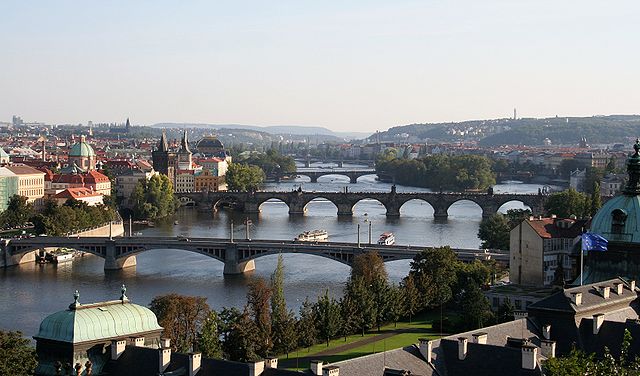
Want to take a trip to Europe but not sure you can afford it? Don’t stress, as we’re here to tell you that travelling on a budget in Europe is possible. In fact, there are plenty of ways to travel frugally and not feel like you are foregoing the quality of your trip. Here are nine great tips to help make your European dream vacation a reality:
- Research – The number one way to save money while travelling is DO YOUR RESEARCH BEFORE YOU GO! With the internet, researching a trip is easy to do and will go a long ways towards insuring that you get the most out of your vacation for the least amount of money.
- Planning – A great way to save money (and valuable time) is to focus on a specific region in Europe. Spreading yourself too thin is a quick way to burn through your wallet and deplete your energy. To avoid this, tailor your trip to an area of interest and don’t get carried too far from your target! For example, explore Scandinavia, the Mediterranean, the Adriatic, the UK, or Central Europe. To make your money stretch that little bit further, try taking advantage of exchange rates and visit non-Euro countries like Bulgaria, Croatia, Czech Republic, Hungary, Lithuania, Poland, or Romania.
- Travel with a partner – Although travelling solo is quite common, it remains the more expensive way to explore Europe and anywhere else in the world. To keep accommodation, eating, and sightseeing more affordable, consider buddying up with a friend. If no friend is available, there are multiple safe and easy ways to meet other like-minded travellers with similar itineraries. A great place to start is the Travel Buddies section of the Lonely Planet’s Thorntree Forum.
- Transportation – Air travel can feel prohibitively expensive but you might be surprised what deals you can find with a bit of research. Most budget airlines have mailing lists that promote special deals as do travel websites. These days, it is often better to book one-way tickets to and from different cities in Europe rather than attempt to arrive and depart from the same city on a round-trip ticket. Once in town, use local transportation instead of taxis and with a little research you will already understand their public transportation and what kind of special day, 3-day, and one week passes are available. Some cities offer great deals for combination public transportation and museum passes like the Lisbon Card and Oslo Welcome Card.
- Accommodation – Sleep cheap! There are many less-expensive options that won’t cost you comfort. Depending on your itinerary you may be able to rent an apartment or private room for a fraction of the cost of a hotel. Housesitting, couchsurfing and university rooms are also great low-budget options. Don’t forget that hostels often have inexpensive private rooms as well as dorms available too. One of the best ways to save money is to combine transportation and hotel by taking overnight sleeper trains or comfy (yet affordable) luxury busses to your next destination.
- Eating – Just like at home, dining at restaurants can eat your money fast. Use this travel opportunity to explore and buy your meals from local markets and supermarkets. Cook when possible and pack picnics to eat in the wonderful locales you are exploring that day. Always buy what is in season and feel free to haggle as it’s expected in some cultures! When you eat out, choose a family-run restaurant instead of an expensive chain. Not only will you save money but you’ll also have a more rewarding cultural experience. When researching your destinations before going, don’t forget to check cultural food customs that will make for cheap eats on the road. For instance, take advantage of menu del dia in Spain, apertivo in northern Italy, or cichetti in Venice. Regarding beverages, refill your water bottle instead of buying pricey drinks and stick to local beer and wine when out at night. Curbing alcohol intake is one of the best ways to save cash (and stay safe) when keeping to a budget.
- Entertainment – Make a habit of visiting the Tourist Bureau when you arrive in new destinations. This is where you will learn about free concerts, museum passes, public festivals, and open walking tours. You can also get upcoming event schedules, free maps, discount coupons, and pick up tips on how to get current special deals around town. If cultural activities are your forte, then plan your trip to take advantage of premiere arts hosted in more affordable European cities. For instance, build your itinerary around free Berlin Philharmonic lunchtime concerts, opening night at the opera in Prague, or the first Thursday of the month when St. Petersburg’s Hermitage and other museums are free.
- Money – Know the best way to handle your finances before you go. Know what kind of fees are attached to using ATMs and credit cards in the countries you are visiting and make your financial plan accordingly. In general, bank ATMs will give you a significantly better rate than off-brand ATMs. And remember, it may be smarter to bring cash to exchange at the local rate. Before you land, compare airport exchange rates to in-town rates and have a plan on how much local currency (if any) you will need to get to your hotel.
- Phone/Data – If you plan on using your smartphone, look into getting a local prepaid SIM card and phone/SMS/data package when you arrive. This is probably much cheaper than any international plans available from your home provider. Having said this, free Wi-Fi is becoming standard in many places across Europe so you may find that you won’t need your own data plan whilst you’re there.
With reference to all of the above, remember that a little research before you leave goes a long way in saving you money and time once you arrive. So start saving your money, doing your homework, and enjoy your stellar European vacation!

